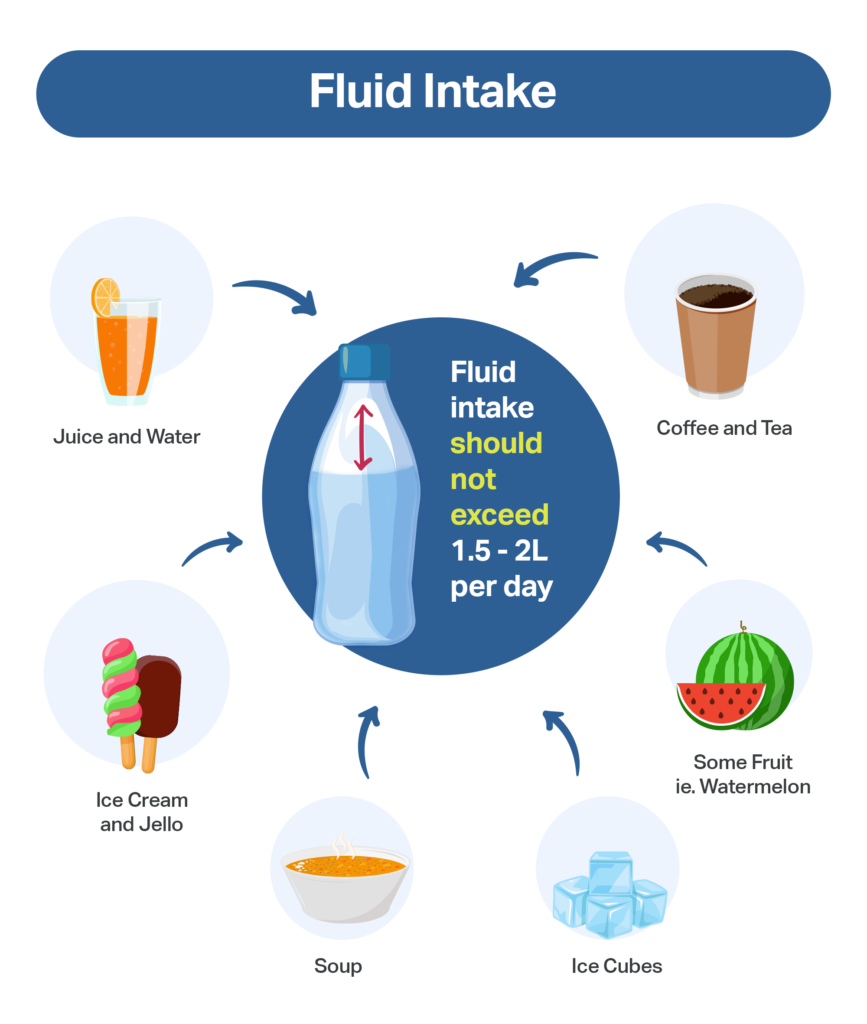
Maintaining proper hydration is essential for overall health, including the well-being of our cardiovascular system. However, in the case of heart failure, a condition characterised by the heart’s inability to pump blood efficiently, fluid restriction becomes a crucial aspect of managing the disease and improving heart health. This article will explore the importance of hydration in heart health and the reasons behind fluid restriction in heart failure.
Importance of Hydration for Heart Health:
Hydration plays a vital role in supporting the health of our cardiovascular system. When adequately hydrated, blood circulation is optimised, allowing the heart to pump oxygen and nutrients to all body parts efficiently. Proper hydration helps maintain healthy blood pressure levels, reduces the risk of blood clot formation, and supports the function of vital organs.

Fluid Accumulation and Heart Failure:
Heart failure, a chronic condition affecting millions worldwide, disrupts the heart’s ability to pump blood effectively. As a result, fluid can accumulate in various body parts, leading to symptoms such as swelling in the legs and ankles, shortness of breath, and fatigue. To manage these symptoms and prevent further complications, fluid restriction is often recommended as part of a comprehensive treatment plan.
Understanding Fluid Restriction:
Fluid restriction in heart failure refers to the deliberate limitation of fluid intake to lessen the workload on the heart and prevent fluid overload. The guidelines for fluid regulation may vary depending on the severity of heart failure and individual circumstances, emphasising the importance of personalised advice from healthcare professionals.

Tailored Fluid Intake Recommendations:
Healthcare providers consider several factors when determining the appropriate fluid intake for individuals with heart failure. Weight, kidney function, and general health status help shape personalised fluid restriction recommendations. These guidelines often restrict free fluids, such as water, juices, and other beverages, while allowing for fluids from food sources.
Adhering to Fluid Restriction Guidelines:
If you have heart failure and are advised to follow fluid restriction guidelines, it is crucial to adhere to these recommendations. Monitoring your fluid intake diligently and staying within the prescribed limits can significantly contribute to symptom management, prevent fluid build-up, and improve heart function. Remember that the primary goal is to reduce the workload on the heart and maintain fluid balance within healthy limits.

Consultation with Healthcare Professionals:
Since each individual’s circumstances are unique, consulting with healthcare professionals who can provide personalised advice based on specific conditions is imperative. Your healthcare team will help determine the appropriate fluid restriction guidelines tailored to your needs, ensuring you balance hydration and manage heart failure.
Proper hydration is crucial for maintaining a healthy cardiovascular system. However, in the case of heart failure, fluid restriction becomes an essential component of managing the condition and improving heart health. By understanding the reasons behind fluid restriction and adhering to personalised recommendations, individuals with heart failure can better manage their symptoms, prevent complications, and support their overall well-being. Remember, consulting with healthcare professionals is vital to receiving personalised advice and ensuring optimal management of heart failure.



Be the first to comment